The Nvidia GeForce RTX 5090, upon its release, disappointed many with its marginal performance boost over the RTX 4090, especially given its significantly higher price tag. In contrast, the Nvidia GeForce RTX 5070 Ti, while not a huge leap in speed from the last generation, offers a more budget-friendly option, making it the most sensible choice from the Blackwell lineup for those not looking to splurge.
Priced at a base of $749, the GeForce RTX 5070 Ti excels as a 4K graphics card, effectively overshadowing the pricier RTX 5080. However, transparency is key: the model I reviewed was an aftermarket MSI version, which comes at a steeper $1,099—exceeding the RTX 5080's $999 price. If you manage to secure an RTX 5070 Ti at its base price of $749, it stands out as the best graphics card for most gamers, particularly those aiming to play at 4K.
Purchasing Guide
The Nvidia GeForce RTX 5070 Ti will be available starting February 20, 2025, with a starting price of $749. Be aware that various models may carry higher price tags, which can affect its value proposition when nearing the cost of the RTX 5080.
Nvidia GeForce RTX 5070 Ti – Photos
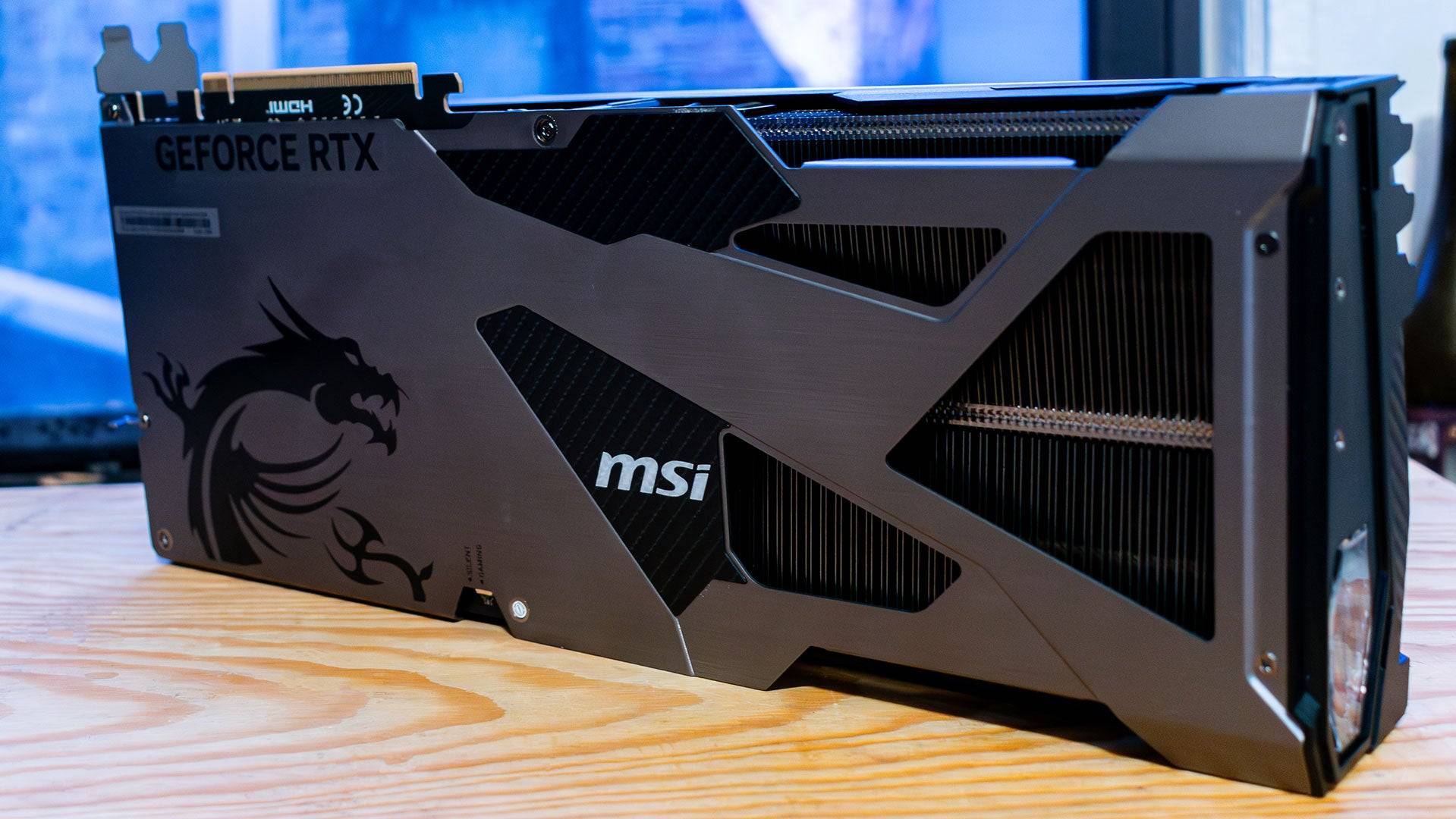
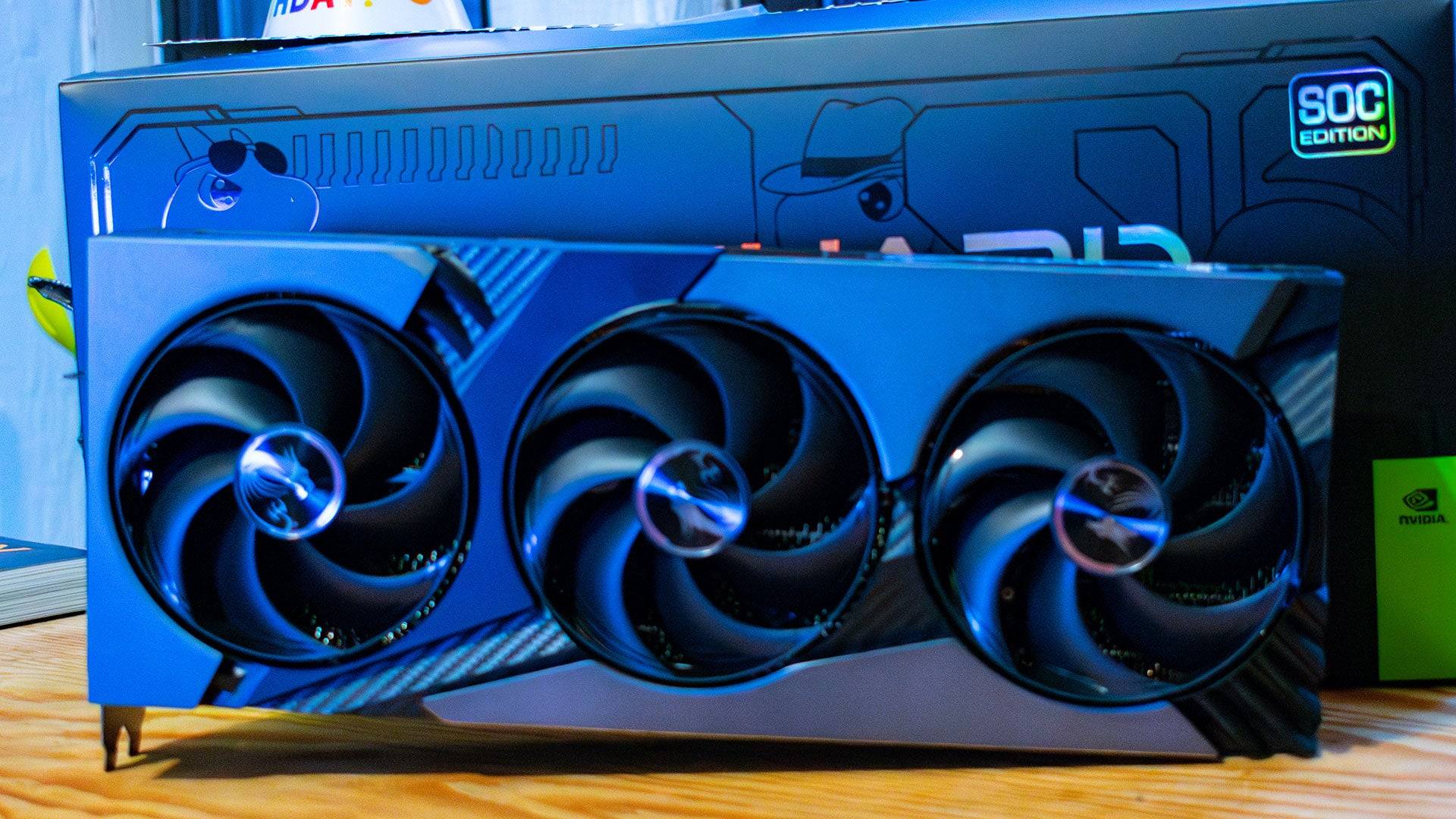 6 Images
6 Images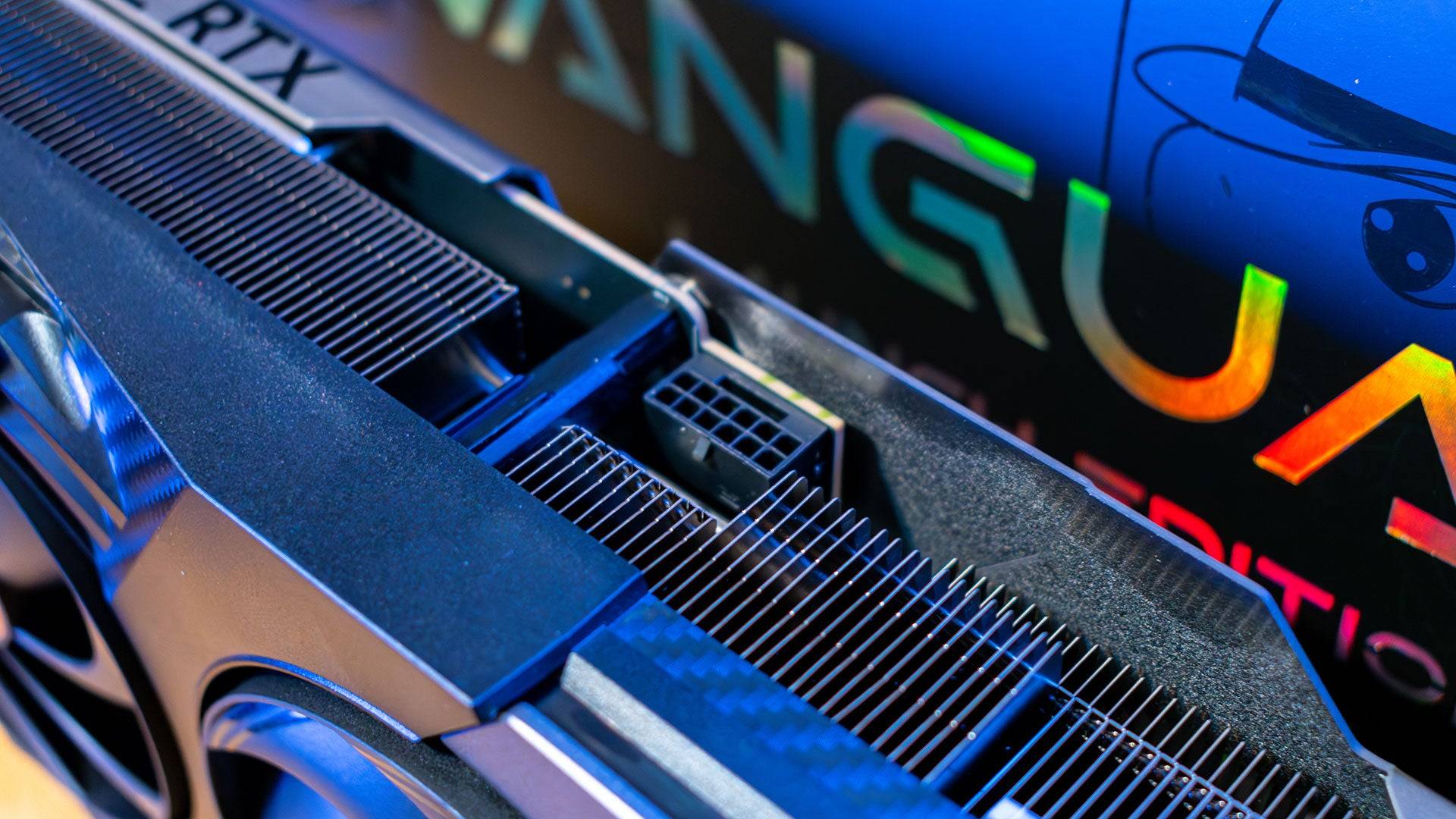
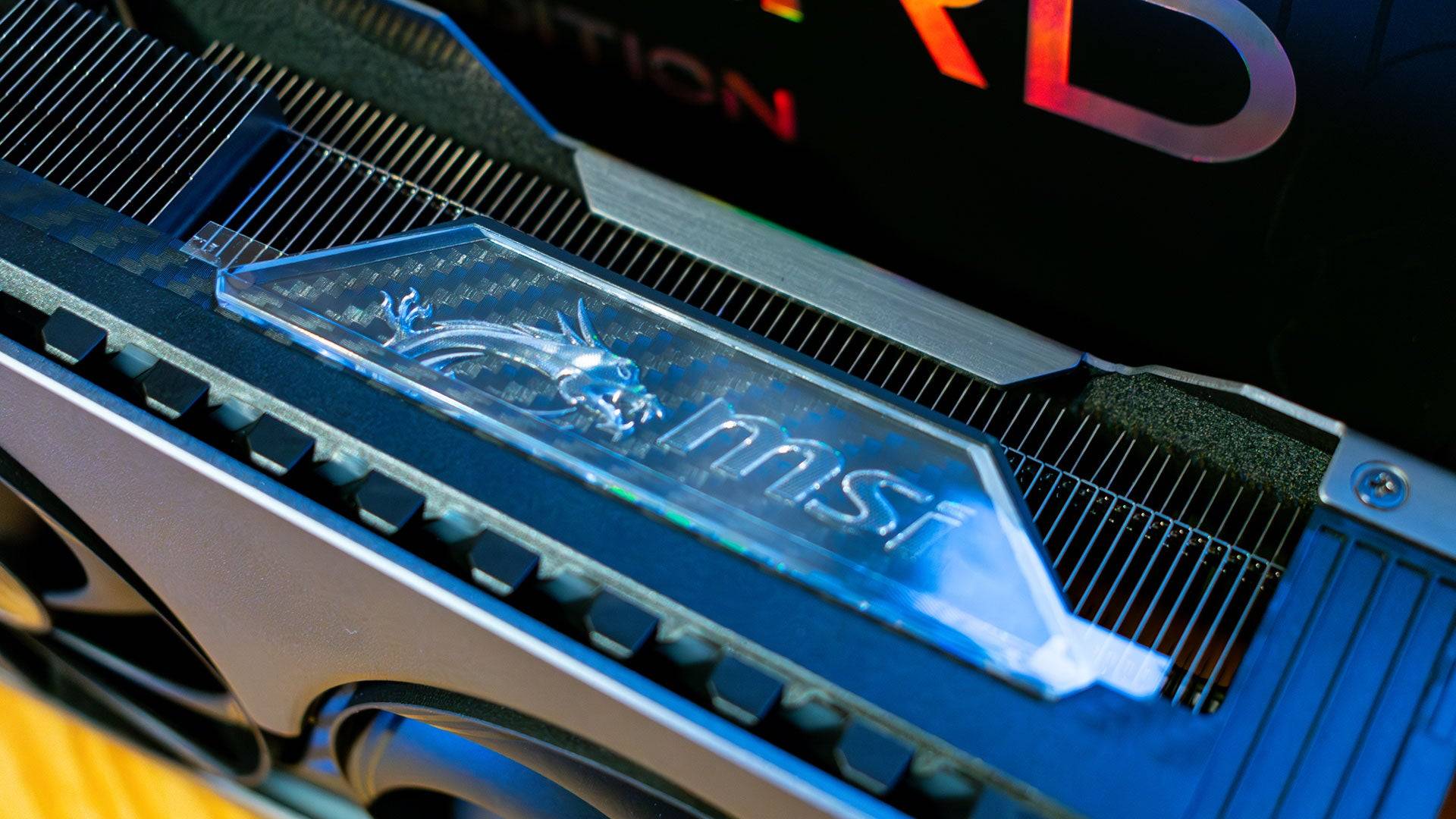
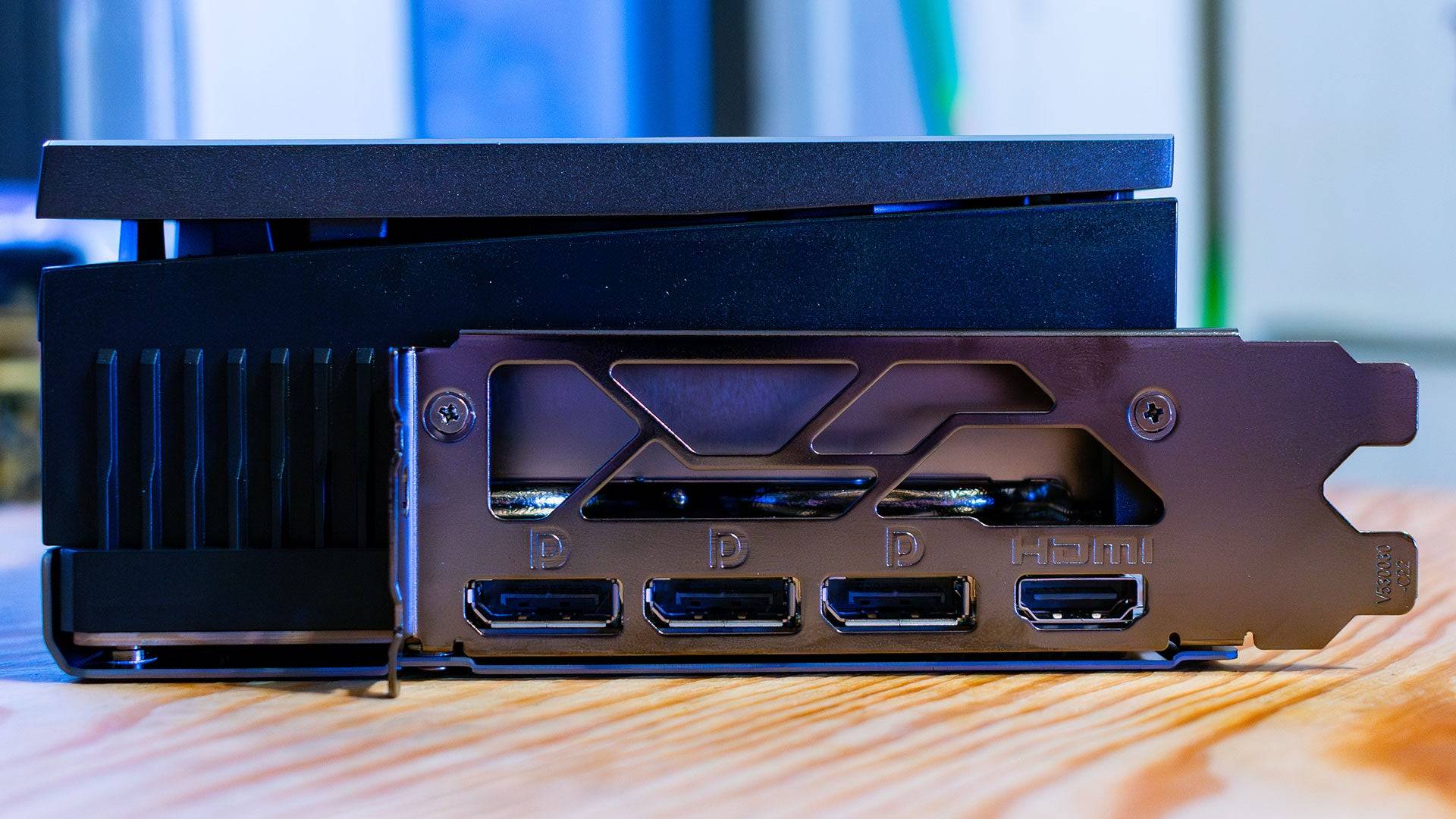

Specs and Features
The Nvidia GeForce RTX 5070 Ti is the third card built on Nvidia's Blackwell architecture, initially designed for supercomputers powering AI models like ChatGPT. This architecture has been adapted for gaming GPUs, maintaining a strong focus on AI capabilities.
The RTX 5070 Ti utilizes the GB203 GPU, similar to the RTX 5080, but with 14 streaming multiprocessors (SM) disabled, resulting in 70 SMs, 8,960 CUDA cores, 70 RT cores, and 280 Tensor Cores. It also features 16GB of GDDR7 RAM, slightly slower than the RTX 5080. The Tensor Cores are crucial, as Nvidia leverages AI upscaling and frame generation to enhance performance.
The Blackwell architecture introduces an AI Management Processor (AMP) to streamline work distribution across the GPU, previously managed by the CPU. This enhances the efficiency of processes like DLSS and frame generation. DLSS has been upgraded to use a Transformer model, improving image quality and reducing artifacts. DLSS 4 includes a new "Multi-Frame Generation" (MFG) technology, capable of generating up to three frames from each rendered frame, although this increases latency, mitigated somewhat by Nvidia's Reflex technology.
With a 300W Total Board Power budget, the RTX 5070 Ti is only slightly more power-hungry than its predecessors, the RTX 4070 Ti and RTX 4070 Ti Super. Nvidia recommends a 750W power supply, but for safety, an 850W PSU is advisable, especially for the high-end MSI Vanguard Edition reviewed here.

DLSS 4 – Is It Worth It?
The RTX 5070 Ti's primary allure lies in DLSS 4 and its multi-frame generation capabilities. This technology maximizes the potential of high-refresh-rate monitors by boosting frame rates, albeit with a slight increase in latency. The Tensor Cores analyze rendered frames and motion data to predict and generate new frames, significantly enhancing frame rates without a dramatic increase in latency.
In Cyberpunk 2077, at 4K with Ray Tracing Overdrive and DLSS set to performance, the RTX 5070 Ti achieves 46 fps with 43ms latency. Activating 2x frame generation increases this to 88 fps, with latency rising to 49ms. With 4x frame generation, the frame rate reaches 157 fps, but latency increases to 55ms. In Star Wars Outlaws, the RTX 5070 Ti hits 67 fps at 4K Max settings with DLSS on performance. Enabling 2x frame generation boosts this to 111 fps, reducing latency from 47ms to 34ms, thanks to Reflex. However, 4x frame generation pushes the frame rate to 188 fps, with latency at 37ms.
While multi-frame generation enhances visual fluidity, it does not significantly improve responsiveness. However, with the RTX 5070 Ti's robust performance at 4K, the minimal latency increase is hardly noticeable.
Nvidia GeForce RTX 5070 Ti – Benchmarks
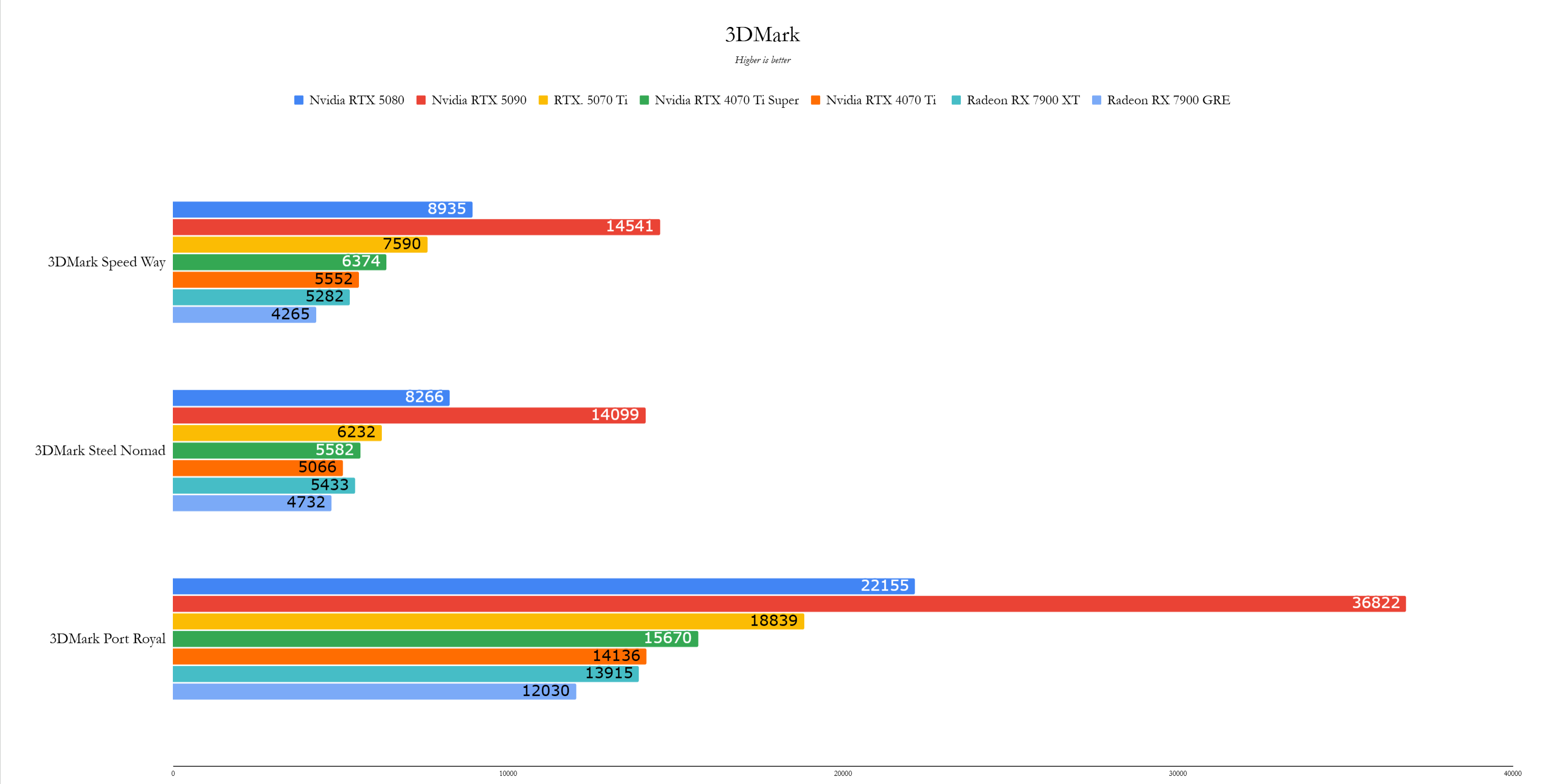
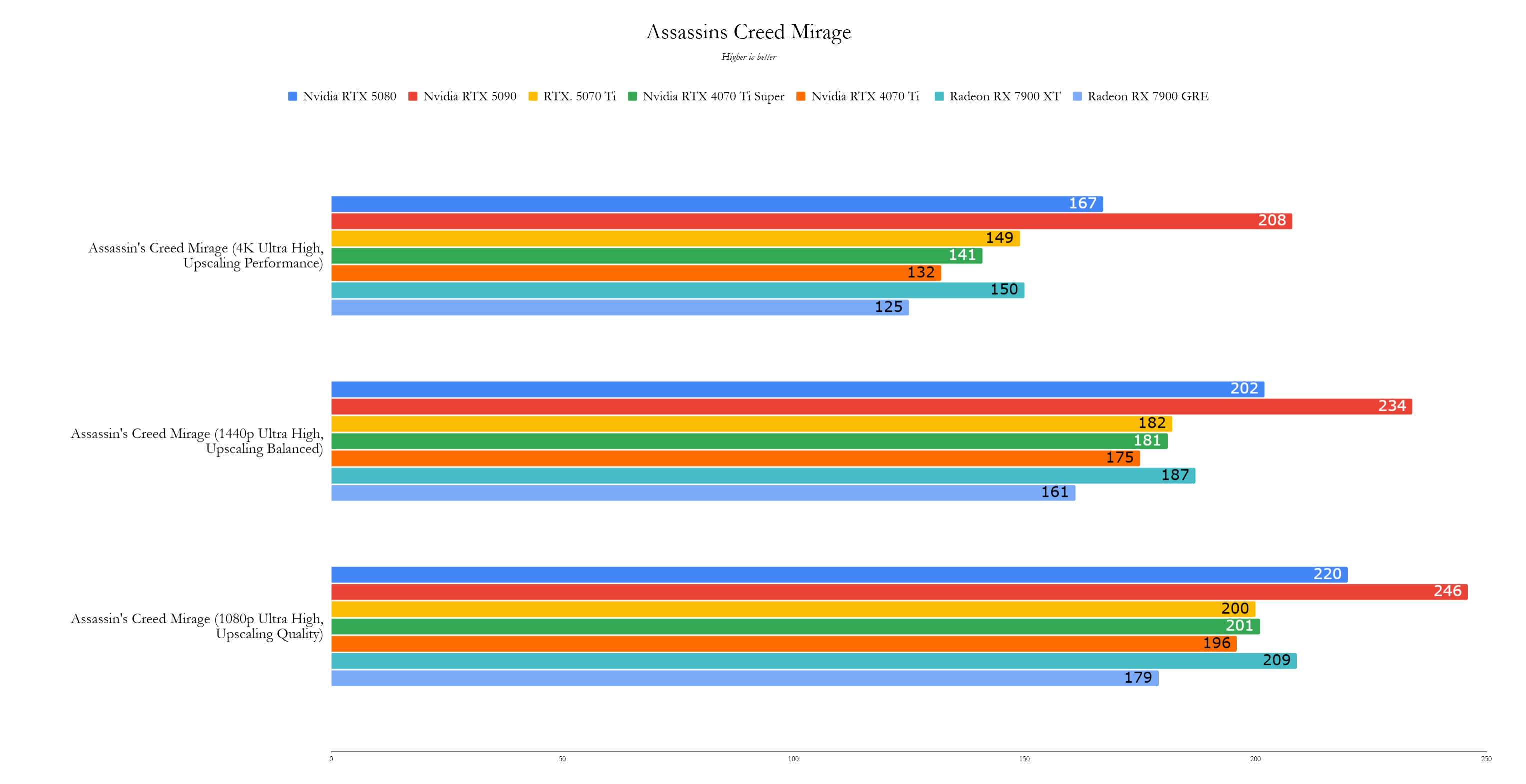 12 Images
12 Images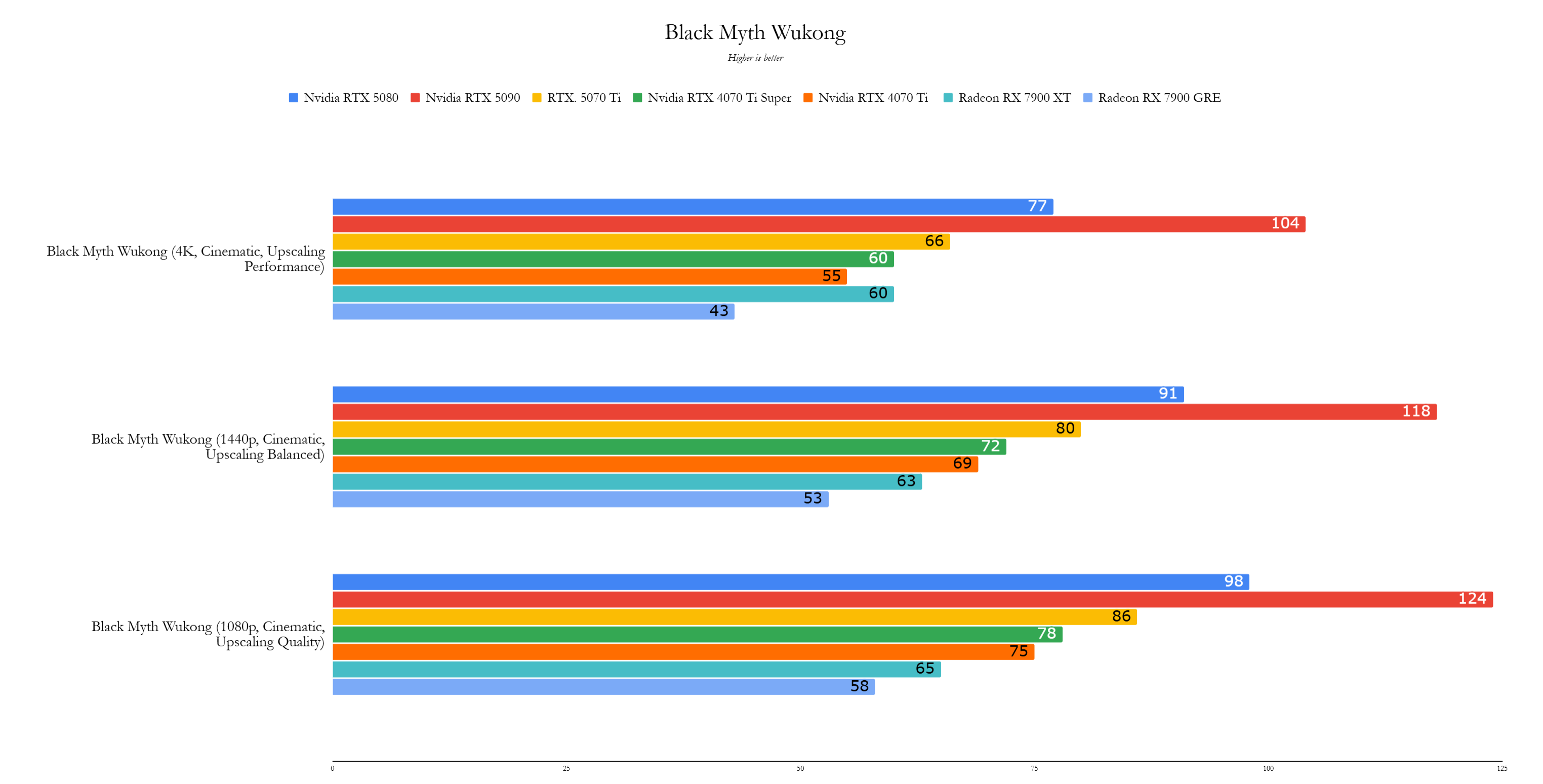
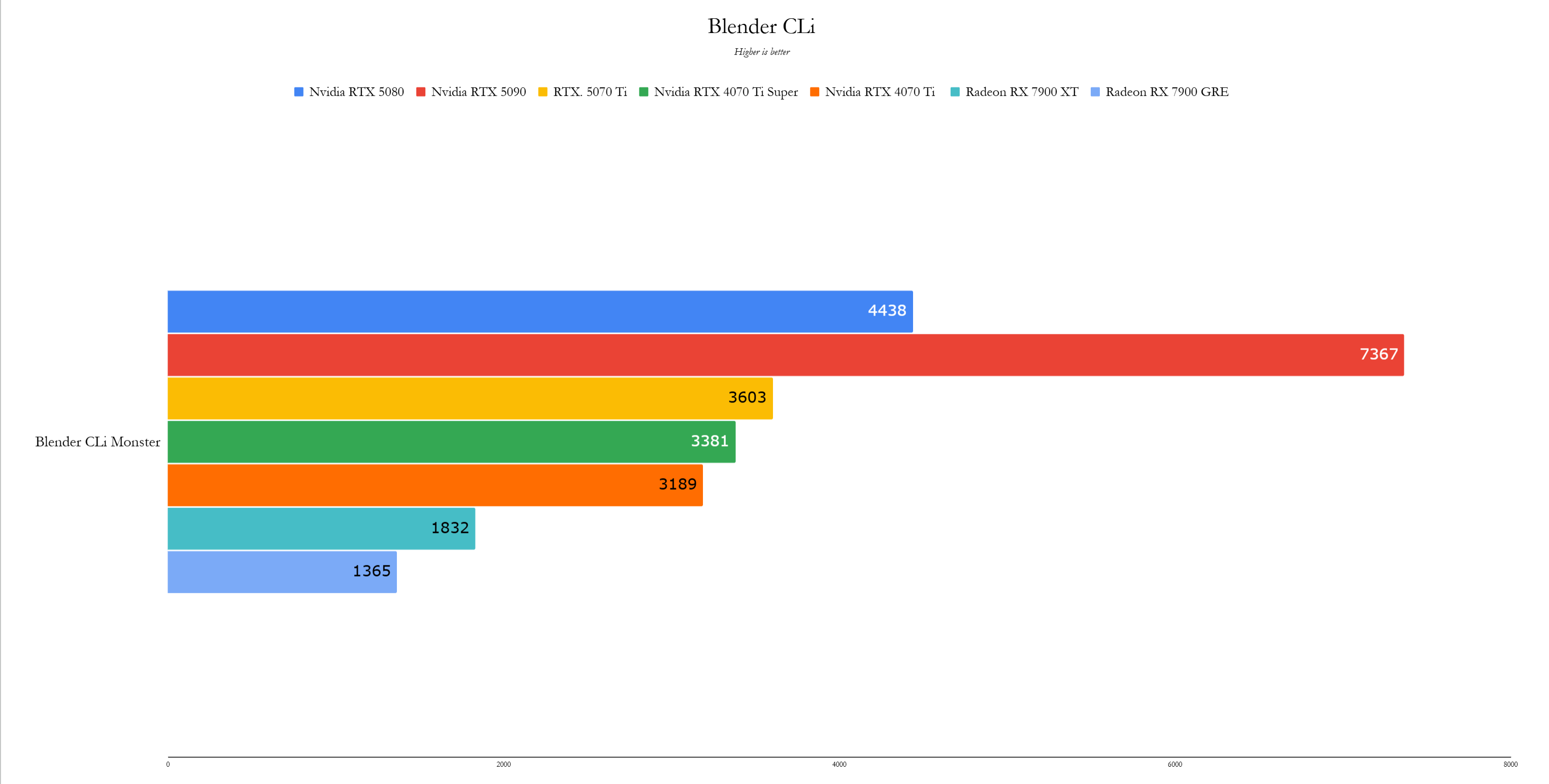
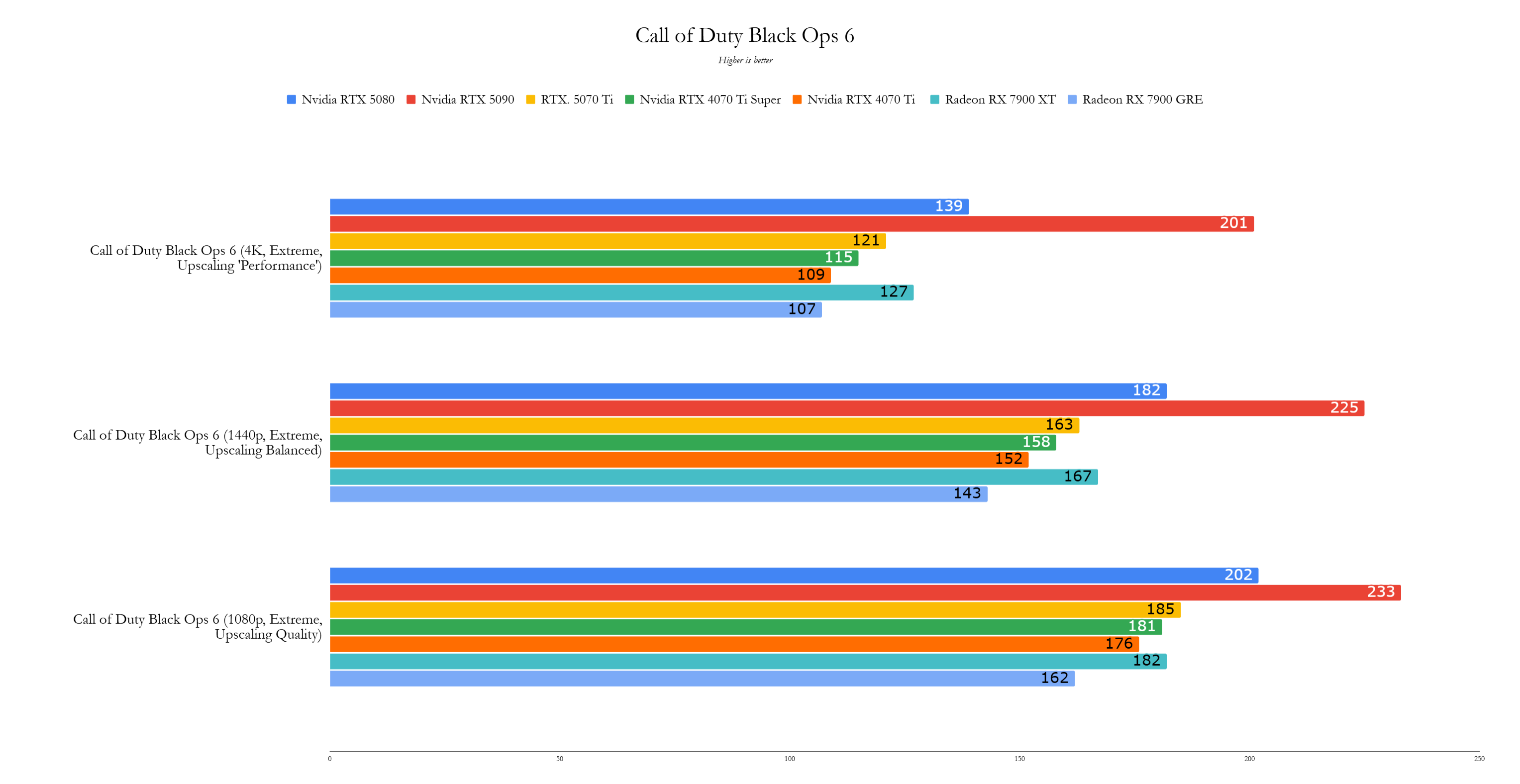
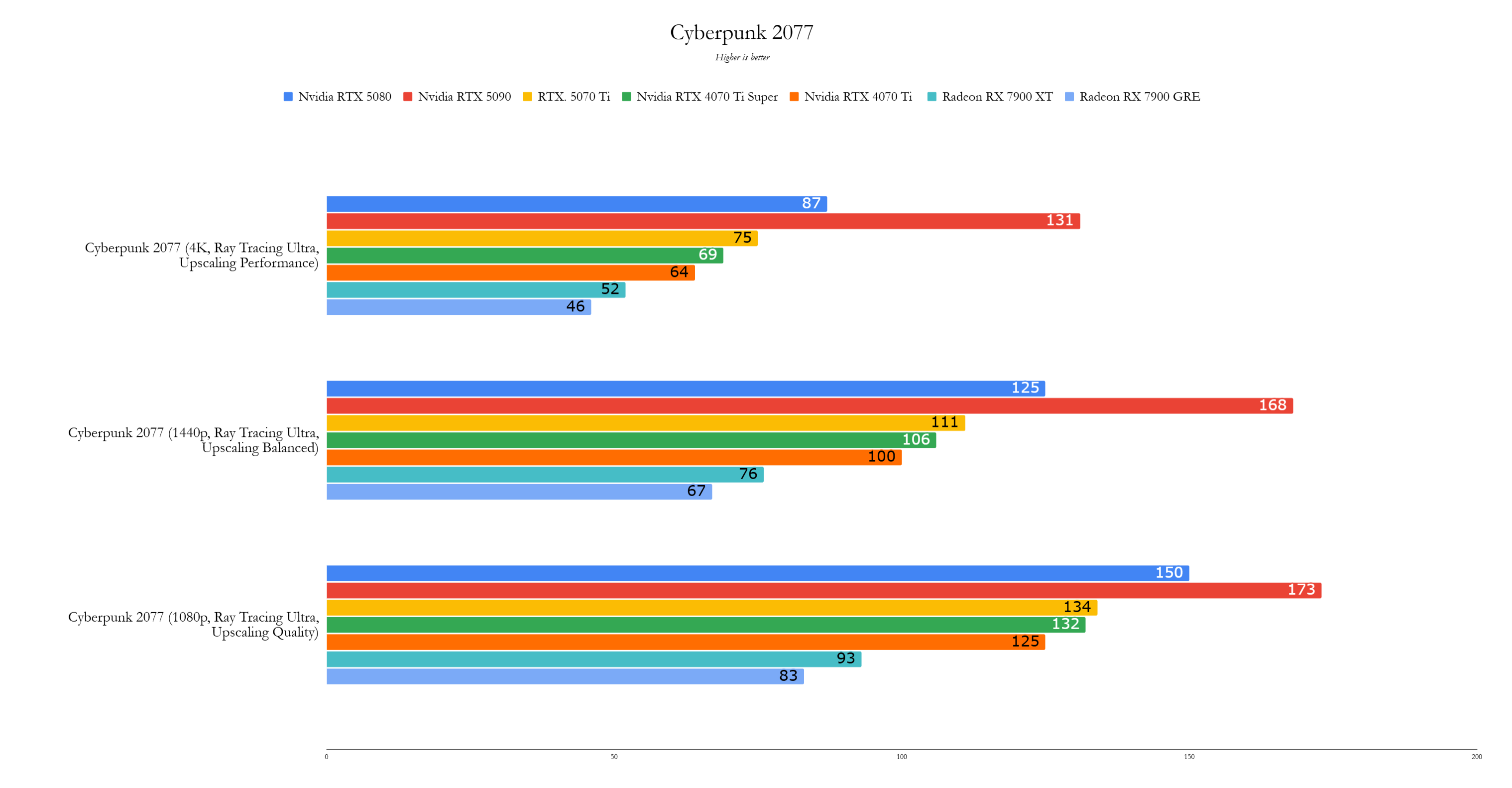
Performance
At 4K, the Nvidia GeForce RTX 5070 Ti outperforms the RTX 4070 Ti Super by about 11% and the RTX 4070 Ti by 21%, offering a significant generational improvement. The RTX 5070 Ti comfortably exceeds 60 fps at 4K in demanding titles like Black Myth Wukong and Cyberpunk 2077.
Test System
- CPU: AMD Ryzen 7 9800X3D
- Motherboard: Asus ROG Crosshair X870E Hero
- RAM: 32GB G.Skill Trident Z5 Neo @ 6,000MHz
- SSD: 4TB Samsung 990 Pro
- CPU Cooler: Asus ROG Ryujin III 360
For this review, I used the MSI Vanguard Edition of the RTX 5070 Ti at stock settings to assess its baseline performance. All tests were conducted with the latest game versions and drivers, ensuring a fair comparison.
In 3DMark Speed Way, the RTX 5070 Ti scores 7,590 points, a 19% increase over the RTX 4070 Ti Super and a 36% jump from the RTX 4070 Ti. In Port Royal, it achieves 18,839 points, compared to 15,670 and 14,136 from the 4070 Ti Super and 4070 Ti, respectively, highlighting its potential for future optimizations.
In gaming, the RTX 5070 Ti shows varied performance improvements. In Call of Duty: Black Ops 6 at 4K Extreme, it achieves 121 fps, a modest 5% improvement over the RTX 4070 Ti Super. In Cyberpunk 2077 with Ray Tracing Ultra at 4K, it leads by 9% and 17% over the RTX 4070 Ti Super and RTX 4070 Ti, respectively, maintaining a solid 75 fps.
Metro Exodus: Enhanced Edition, tested without upscaling, sees the RTX 5070 Ti at 48 fps at 4K Extreme, slightly better than the RTX 4070 Ti Super's 45 fps and the RTX 4070 Ti's 42 fps. Red Dead Redemption 2 is an anomaly, with the RTX 5070 Ti at 113 fps, 2% slower than the RTX 4070 Ti Super.
Total War: Warhammer 3, tested without ray tracing or upscaling, showcases the RTX 5070 Ti's rasterization prowess, achieving 78 fps at 4K max settings, a 15% and 30% improvement over the RTX 4070 Ti Super and RTX 4070 Ti, respectively.
In Assassin’s Creed Mirage, the RTX 5070 Ti manages 149 fps at 4K Ultra High, slightly outperforming the RTX 4070 Ti Super's 141 fps and the RTX 4070 Ti's 132 fps. Black Myth Wukong at 4K Cinematic Preset with DLSS at 40% yields 66 fps, a 10% improvement over the RTX 4070 Ti Super. Forza Horizon 5 at 4K Extreme sees the RTX 5070 Ti at 152 fps, a 15% and 21% improvement over the RTX 4070 Ti Super and RTX 4070 Ti, respectively, and even surpassing the Radeon RX 7900 XT.
In conclusion, if you can find the Nvidia GeForce RTX 5070 Ti at its base price of $749, it offers exceptional value for 4K gaming, marking it as the best choice in the Blackwell series for those seeking performance without breaking the bank.






























